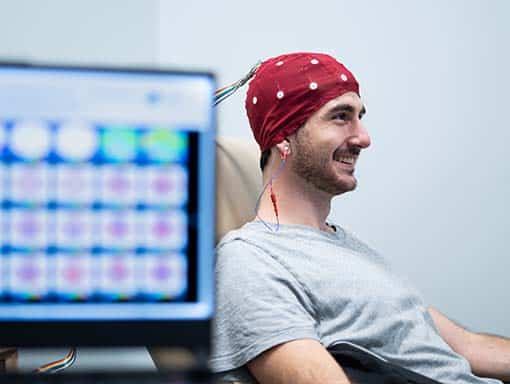
Post-traumatic stress disorder or PTSD is a serious mental disorder that’s triggered by a traumatic event — wherein the individual is either the victim or the witness.
Post-traumatic stress disorder or PTSD is a type of severe anxiety disorder. People who have suffered from mental trauma such as abuse (physical or mental), a near-death experience, or any type of serious injuries are more prone to suffer from PTSD. According to the experts, an individual who is under acute stress disorder for more than a month is the one who is suffering from this condition. If you are one of them then you don’t need to worry more. Wondering why? A new study has revealed that “brain training” may be an effective treatment for individuals with post-traumatic stress disorder (PTSD). Yes, that’s right. Now let’s understand how.
Warning Symptoms Of PTSD You Should Know
PTSD can have severe effects on an individual’s physical and mental health. Some of the warning signs and symptoms of this mental disorder may include:
1. Flashbacks
One of the most common symptoms of this mental condition is – flashbacks. According to the experts, patients suffering from this disorder tend to feel that they have travelled back to the traumatic time period and they are still under torture or trauma.
2. Nightmares
The individual suffering from PTSD may get nightmares more often than what is natural. These nightmares are again flashbacks of the traumatic event which lead to the serious mental condition.
3. Emotional Distress
The person can also go through severe emotional distress or physical reactions to any of the events which remind him/her of the traumatic event.
‘Brain Training’ May Help Treat PTSD – Here’s How
According to the study which was published in the journal Neuroimage: Clinical indicates that neurofeedback, also called ‘brain training,’ — consists of exercises where individuals regulate their own brain activity — was effective in reducing symptoms of PTSD.
Speaking to the media, the study author – Ruth Lanius from the Western University in Canada said, “Brain connectivity involves different parts of the brain communicating with each other and helps to regulate states of consciousness, thought, mood and emotion”.
He added, “Individuals with PTSD tend to have disrupted patterns of brain connectivity, but our research suggests they can exercise their brains to restore patterns to a healthy balance”.
Severity Of PTSD Symptoms Decreased Among Those Who Went Through Brain Training
For the study, the team tested neurofeedback with a total of 72 participants, including 36 participants with PTSD and 36 healthy control participants.
Of those with PTSD, 18 were randomized to participate in neurofeedback treatment while the other 18 acted as a comparison group.
The study found that the severity of PTSD symptoms decreased in participants randomized to receive neurofeedback treatment.
Functional Magnetic Resonance Imaging
After treatment, 61.1 per cent of participants no longer met the definition for PTSD. This remission rate is comparable to gold standard therapies like trauma-focused psychotherapy.
The research team also used functional magnetic resonance imaging (fMRI) to capture brain scans of participants both before and after participation in the trial.
They found that individuals with PTSD experienced positive changes in brain connectivity in the salience network and the default mode network following neurofeedback treatment.
“Neurofeedback could offer an accessible and effective treatment option for individuals with PTSD. The treatment is easily scalable for implementation in rural areas and even at home,” the researchers said.
Article cited from The Health Site
